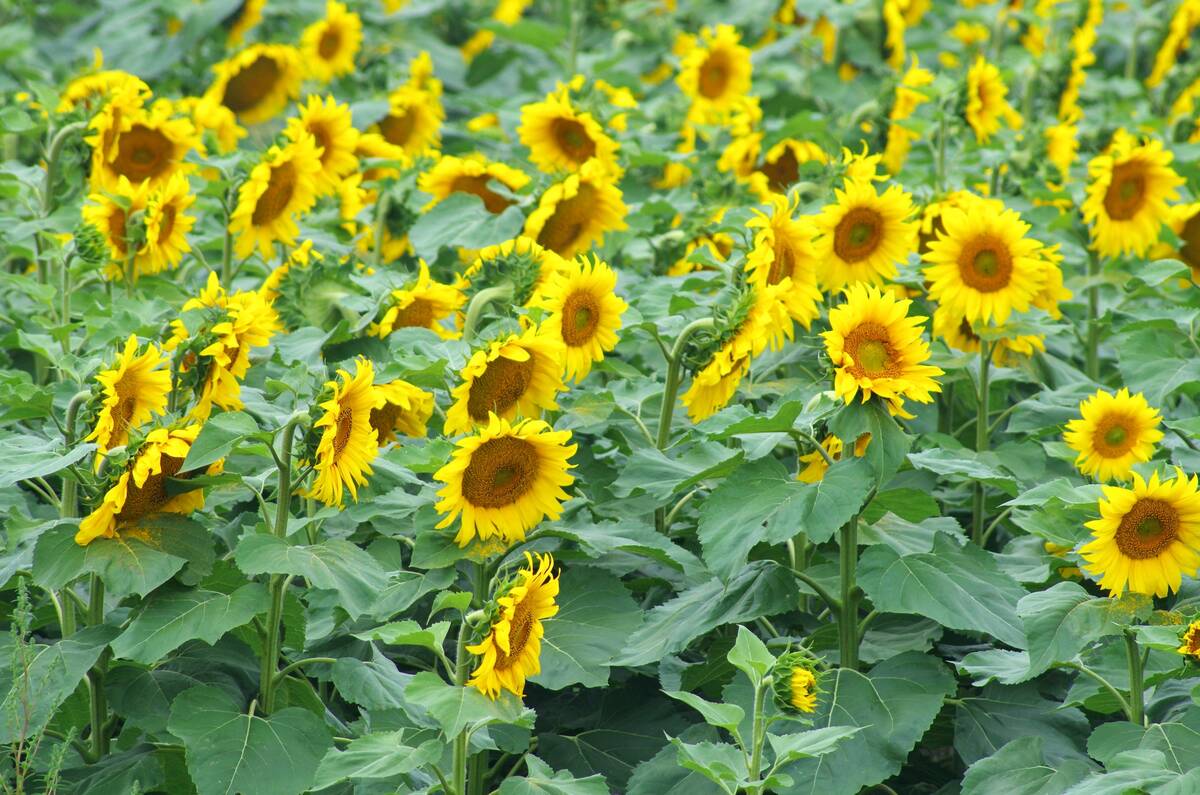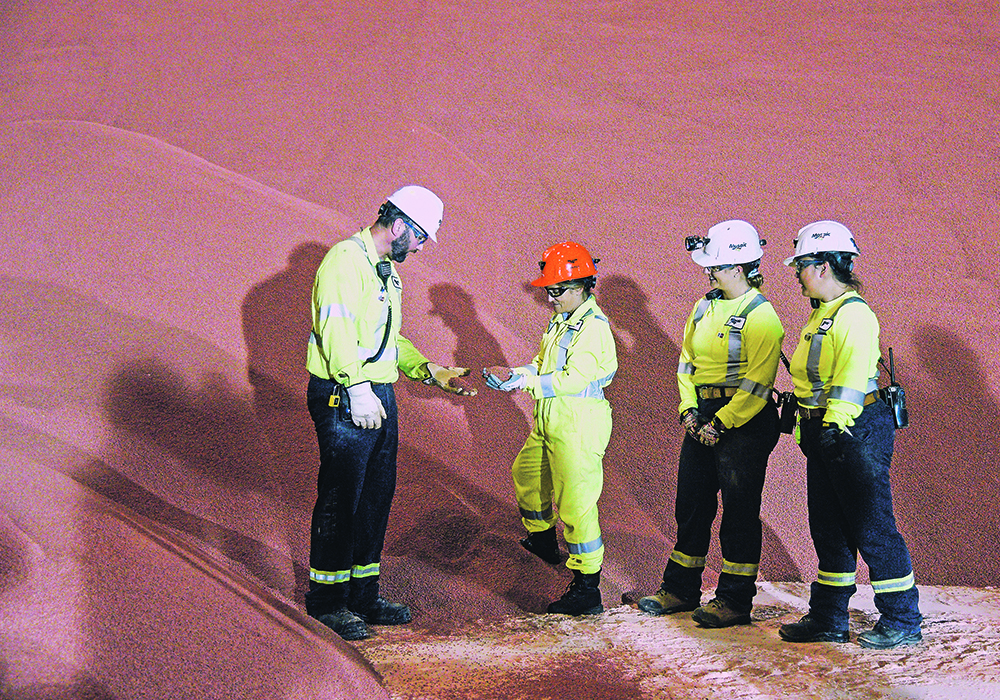COLONSAY, Sask. — Deputy prime minister Chrystia Freeland addressed criticism last week regarding the federal government’s target to lower fertilizer emissions after touring the Mosaic Colonsay potash mine east of Saskatoon.
The government plan would have farmers reduce greenhouse gas emissions from nitrogen fertilizer by 30 percent below 2020 levels by 2030.
Freeland said farmers are good at minimizing their use of fertilizer and ensuring they’re using enough to grow food.
“I know a lot of farmers and I do not know a single farmer who uses more fertilizer than he or she absolutely needs to. Fertilizer is expensive and so I have a lot of confidence in the very good judgment of Canadian farmers in running their farms,” she told reporters.
Read Also

Made-in-Manitoba sunflower hybrid heads to market
Glacier FarmMedia – Manitoba’s confection sunflower growers will have a new seed option next spring that was developed specifically to…
“I absolutely believe it is a good thing for the world and for Canada, for us to reduce our emissions in all sectors of the economy. I know farmers already are as precise as they can be in the use of all expensive inputs, including fertilizer, and I have tremendous confidence they’re going to continue to do that,” she added.
Agriculture Canada has reported emissions from fertilizer were around 12.75 million tonnes in 2019 and the federal government wants that number reduced to nine million tonnes in eight years.
However, a recent survey by the Canadian Federation of Independent Business indicated almost three-quarters of Canadian farmers said crop yields and overall food production would be reduced if they were forced to cut back on nitrogen fertilizer. About 60 percent said a mandatory reduction would decrease their profitability.
Freeland’s Aug. 24 visit to the province, which involved other stops in Saskatoon, coincided with Ukrainian Independence Day.
Outfitted with personal protective equipment that included steel-toed boots, work gloves, hard hat and safety goggles, Freeland was guided through the mine’s mill process by company staff.
Afterward, she spoke of the increasing significance of potassium fertilizer for Canada and the world.
“This is a strategic resource,” she told reporters. “It always has been a strategic resource because it is part of how we feed people, and nothing is more important than that. But with Russia’s illegal invasion of Ukraine, potash has become even more critical.”
During the past six months in particular, the crop input “has become geopolitically essential.
“I get asked at international meetings about Canada and our ability to supply some of the strategic resources that the world no longer wants to buy from Russia,” she said.
“I am proud to get asked that question because I am really proud that Canada can play a role in supporting democracy and supporting our democratic allies.”
Dustin Orosz, mill manager at Mosaic Colonsay, helped guide Freeland and showcase the potash operation, which re-opened last August after a two-year closure because of poor market conditions.
“Our forecast right now is we’re just north of a million short tons. We’re kind of stepping up our production and ramping up. This facility was shut down for a couple of years and we got our workforce back and we’re ramping up to meet the market demand,” he said.
Orosz said the deputy prime minister’s visit was an exciting opportunity to recognize the expanding workforce at the mine and how operations like this support hundreds of families, which cascades out to the community.
“We really want to get back on the map and help Mosaic and everyone else in this province make some money and help feed the world,” he said.
















